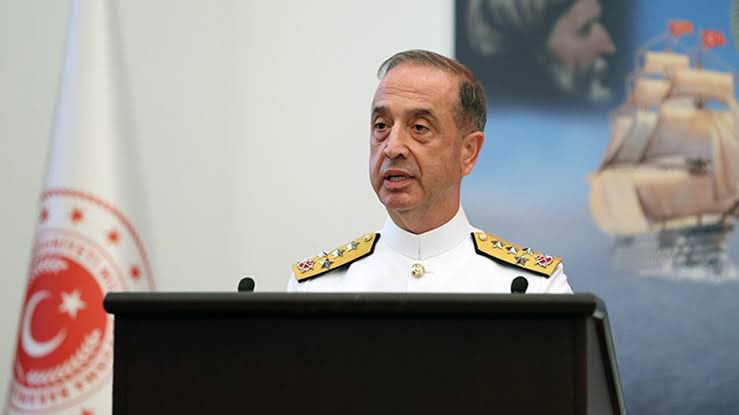The commander of the Turkish navy said in a speech on Friday that Turkey can secure the Black Sea itself and does not want a US or NATO presence there.
“The tensions between Georgia and Russia that began in 2008, the problems between South Ossetia and North Ossetia, the same problems in Abkhazia, the occupation of Crimea in 2014, the Kerch Strait in 2018 and the Ukrainian-Russian war that began in 2022 have ushered in a new era in the geopolitical struggle in the Black Sea,” Adm. Ercüment Tatlıoğlu, commander of the Turkish Naval Forces, said at an event to mark the establishment of a naval school.
“As you know, NATO is trying to take some measures in the Black Sea. However, we declare that we will take these measures in the Black Sea ourselves and that we do not want NATO or America in the Black Sea,” he added.
“In the course of the Ukraine-Russia war, more than 400 mines were thrown into the Black Sea. Seventeen of these mines arrived on our coast,” said Tatlıoğlu.
Tatlıoğlu pointed out that mines are dangerous and said that detecting mines is important for natural gas drilling in the area, as the explosion of mines could lead to the loss of ships and natural gas deposits that are in the open sea.
“Our goal is for Montreux to be respected. We have provided security for everyone in the Black Sea. As Turkey, we provide security in the Black Sea. They [the US] should not turn the Black Sea into a Middle East. That is why we do not want any country or NATO to enter the Black Sea,” Tatlıoğlu said.
NATO ally Turkey borders Ukraine and Russia in the Black Sea and has good ties with both. Under the 1936 Montreux Convention, Ankara has control over the Bosporus and Dardanelles straits and can limit warship passage if it is threatened or during wartime.
This allows it to block Russian warships from transiting the straits to the Black Sea. The pact grants exemption to ships returning to their home bases.
Turkey has provided military support to Ukraine while also maintaining economic cooperation with Russia. It positions itself as a potential mediator in peace talks between Ukraine and Russia while simultaneously expressing opposition to Western sanctions against Moscow.

